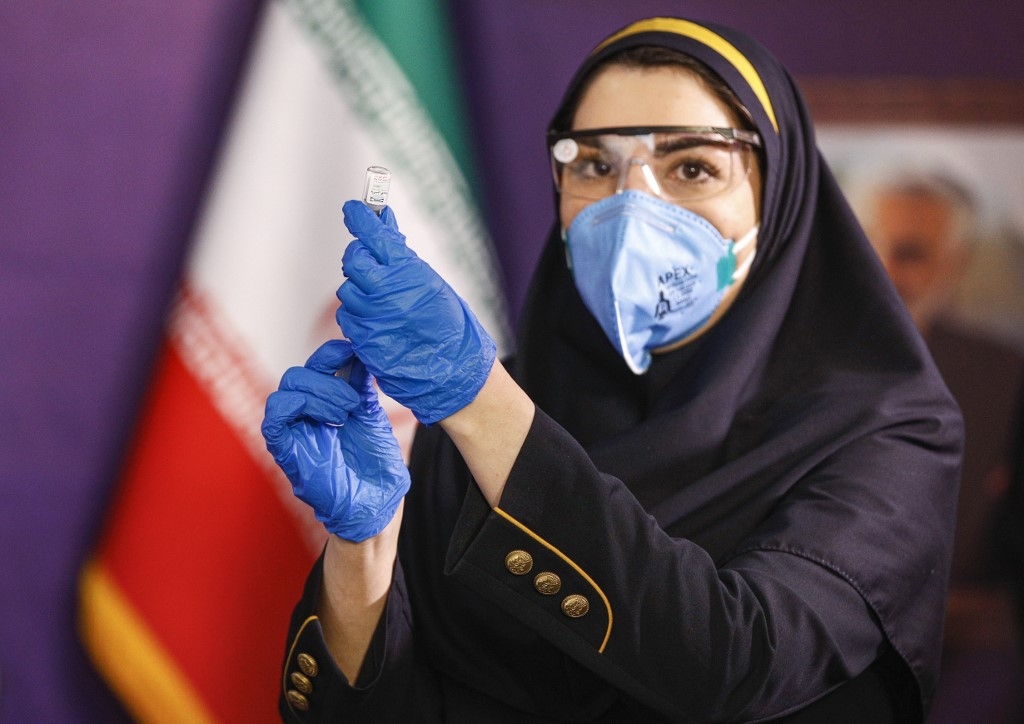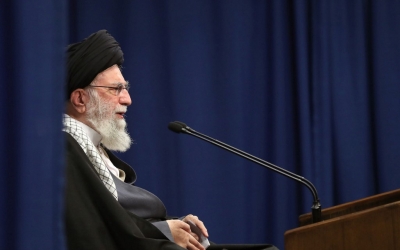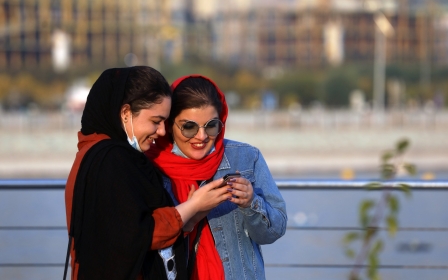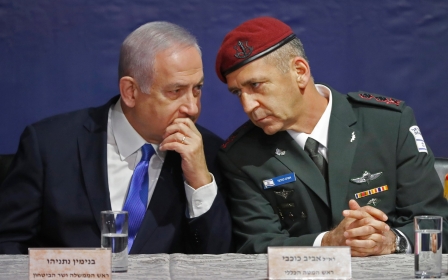Covid-19: Iran says locally produced vaccine effective against UK variant

Iranian health officials said on Saturday the country's locally manufactured vaccine has been shown to work on the variant of the coronavirus first discovered in the United Kingdom.
According to Hassan Jalili, an Iranian official in charge of local vaccine production, tests on the blood samples of volunteers who received two doses of COVIran Barekat have showed that it is "capable of completely defusing the mutated virus of the English corona[virus]".
New MEE newsletter: Jerusalem Dispatch
Sign up to get the latest insights and analysis on Israel-Palestine, alongside Turkey Unpacked and other MEE newsletters
Minoo Mohraz, another senior health official and member of the national coronavirus task force, confirmed the news.
The first case of the UK variant in Iran was confirmed on 5 January after a citizen travelled back from Britain. The seventh case was detected earlier this week in a passenger from the Netherlands.
Iran launched human trials of its first domestic vaccine candidate late last month, saying this could help it defeat the pandemic despite US sanctions that curtails its ability to import vaccines.
On Tuesday, Foreign Minister Javad Zarif said his country had approved Russia's Sputnik V vaccine and it planned to import it as well as produce it in the fight against the pandemic.
Iran's ambassador to Russia said on Saturday that Tehran expects to receive the first batch of Moscow's vaccine by 4 February, state news agency IRNA reported.
Iran has borne the brunt of the coronavirus pandemic in the Middle East, with a recorded 1.4 million positive cases and more than 57,800 deaths.
The decision to approve the Russian vaccine comes weeks after Supreme Leader Ayatollah Ali Khamenei banned Iran from importing vaccines from Britain and the United States.
Khamenei's pronouncement led the Iranian Red Crescent Society to refuse 150,000 vaccines donated by Pfizer.
Earlier this month during a televised speech in Tehran, Khameini described vaccines coming from the UK and the United States as "completely untrustworthy". .
"Imports of US and British vaccines into the country are forbidden... They're completely untrustworthy. It's not unlikely they would want to contaminate other nations," said Khamenei, the country's highest authority.
New quarantine rules
Meanwhile, Alireza Raisi, spokesman for the national coronavirus task force, said on state TV on Saturday that travellers to Iran from Europe will be required to self-quarantine for two weeks after testing negative upon arrival.
Travellers from other regions, including neighbouring countries, will have to have tested negative before arrival in the country.
Raisi said travellers arriving from Europe should be holding negative test results, will be tested again, and will have to self-quarantine even if their test is negative, state media reported.
Previously, people coming from Europe were required only to test negative.
He did not say when exactly the new measures will go into effect, saying only "from now on".
Middle East Eye delivers independent and unrivalled coverage and analysis of the Middle East, North Africa and beyond. To learn more about republishing this content and the associated fees, please fill out this form. More about MEE can be found here.





